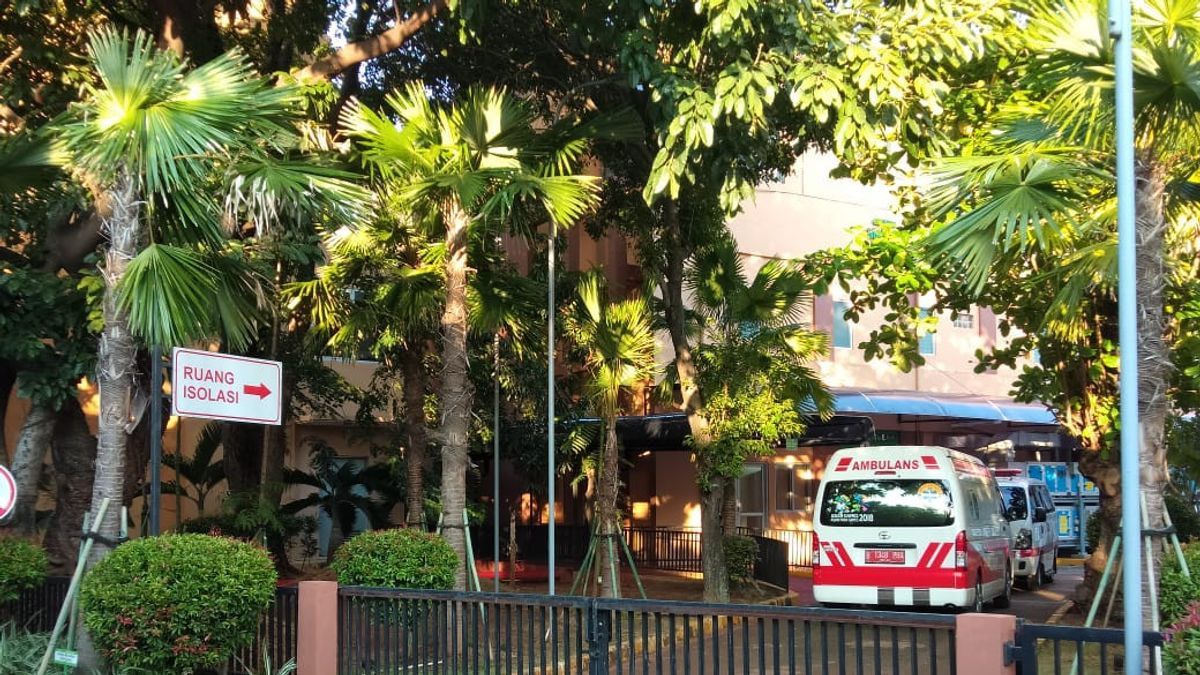JAKARTA - The problems that occur during the corona virus pandemic or COVID-19 are not always about increasing the number of positive cases. Another problem that arises, one of which is the question of society's refusal to bury a patient who died from contracting the virus.
Many people refuse burial for fear of contracting it. They think the virus can spread when the body of a COVID-19 positive patient is buried in a public cemetery (TPU) or in a location close to a settlement. In fact, transmission will not occur when the patient or an infected person has died.
Researcher in the field of microbiology of the Indonesian Institute of Sciences (LIPI) Sugiyono Saputra said, based on existing studies, cases of transmission through funerals have never been found. That is, the transmission of the virus will not occur when the body has been buried.
"So there is no evidence that people around the cemetery can infect them," Sugiyono told VOI, Friday, April 17.
This is because viruses are small organisms that depend on life through host cells, such as humans and animals. By utilizing host cells, viruses can duplicate or reproduce.
When the host cell dies, the virus will automatically not be able to live long and eventually die. For this reason, someone identified as having died from COVID-19 must be buried immediately to accelerate decomposition and kill the virus.
"Maybe it can last for some time, it's just that when buried, it speeds up the process of decay, meaning that human cells will rot by bacteria, so the virus itself also dies," said Sugiyono.
Transmission will also not occur when the body has been buried according to the procedure, namely using plastic to reduce direct contact during the burial process. Therefore, people do not need to be afraid of the transmission of the virus because of the burial of COVID-19 patients around their residence.
"The aim is also to reduce direct contact with many people, as well as to kill the virus," said Sugiyono.
For those who refuse or complicate the funeral process for a positive COVID-19 body, there will be sanctions from the police. Karo Penmas DivHumas Polri Brig. Gen. Argo Yuwono said the sanctions are regulated in Article 212 of the Criminal Code and / or Article 214 of the Criminal Code and / or Article 14 of Law No. 4 of 1984 on Contagious Disease Outbreaks.
"If you refuse, there will be criminal sanctions. The Law on Disease Outbreaks could be imposed," said Argo.
So far, continued Argo, cases of refusal of the bodies of COVID-19 have occurred in several areas. So, his party is working with the TNI and local governments to appeal to residents who do so.
"We keep on appealing to the public, so that they can help so that there is no rejection of it again," said Argo.
Article 212 of the Criminal Code and / or Article 214 of the Criminal Code and / or Article 14 of Law Number 4 of 1984 concerning Contagious Disease Outbreaks, contains about;
Article 14 paragraph 1 states, whoever deliberately obstructs the implementation of the epidemic control as regulated in this Law, shall be punished with imprisonment for a maximum of 1 year and / or a maximum fine of Rp1 million.
Article 14 paragraph 2 states, whoever due to his / her negligence obstructs the implementation of epidemic control as regulated in this Law, shall be punished with imprisonment of up to 6 months and / or a maximum fine of Rp. 500 thousand.
Article 14 paragraph 3 states, the criminal act as referred to in paragraph (1) is a crime and the criminal act as referred to in paragraph (2) is a violation.
The English, Chinese, Japanese, Arabic, and French versions are automatically generated by the AI. So there may still be inaccuracies in translating, please always see Indonesian as our main language. (system supported by DigitalSiber.id)








